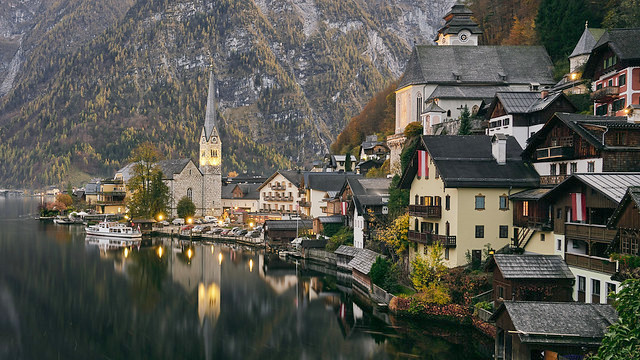Austria attracts foreigners with a high standard of living, rich cultural and historical heritage and stability. There are two main paths to her passport: a relatively short and very expensive one, and a longer one, but accessible to a much wider range of applicants.
Citizenship by investment
Formally, in Austria, a program for granting citizenship to foreigners for investment has been operating for quite a long time, which does not require the applicant to live in the country, nor (since the mid-2000s) knowledge of the German language.
However, it is not designed for a wide audience, as the cost of the “entry ticket” is 8-10 million euros. And even with such a high threshold, not all investments are suitable: investments in a business registered here are welcome, which lead to the creation of jobs and / or an increase in export sales, and investments that involve passive income (purchase of bonds, real estate) for participation in the program as rule does not apply.
In addition to money, the applicant must also have an impeccable reputation; he will need a resume, data on previous activities, as well as recommendations.
If all conditions are met, you will have to be patient, as the processing time for applications can take from 24 to 36 months. But since citizenship has been granted, it is forever: it can be withdrawn only if there was fraud at the application stage and false or false information was provided. The fact of granting citizenship is not published anywhere and is not disclosed to other countries.
An important point: although dual citizenship is prohibited in Austria and it is usually necessary to renounce the first citizenship in order to obtain an Austrian passport, the described investment program allows a foreigner to retain his first citizenship. But if he acquires such citizenship, and then receives another one, he will have to give up his Austrian passport (although in exceptional cases you can get special permission to keep it).
It is clear that with such a high entry threshold, the number of new program participants annually is calculated not even in tens, but in units. Therefore, foreigners are much more likely to choose a longer, but also cheaper way – a residence permit.
Residence permit for financially wealthy and hardworking
In total, there are several residence permits in Austria.
Undoubtedly, the most popular among wealthy third-country nationals is a residence permit of the Private Residence category for financially independent persons. In fact, to obtain it, you only need to have funds in a bank account (not necessarily in Austria) in the amount of at least 25,000 euros, permanent residence in Austria on the basis of a lease or sale agreement for the applicant and dependent persons included in the application and a medical policy insurance. Such a residence permit must be renewed annually.
It does not give the right to work for hire in Austria, however, it allows you to open your own business there. In the second case, most likely, a change in the type of residence permit will follow – to a “red-white-red” card for the self-employed (see below).
In addition to the “Residence for money” in Austria, there are several categories of residence permits for persons engaged in labor or business activities.
Namely:
• The Red-White-Red Card (Employees) allows you to live in the country while working for a specific employer in Austria;
• “Red-white-red card (self-employed)” – allows you to live in Austria and conduct an independent labor activity here;
• “Red-white-red card (students)” – for foreign graduates of Austrian universities and colleges. Gives the right to look for work in Austria for six months without leaving the country;
• “EU Blue Card” – available with a university degree. Gives the right to work for hire with a specific employer in all federal states of the country;
• “Red-White-Red Card Plus” – the right to reside and unrestricted access to the labor market.
There is also a residence permit category Family member for family members of the main applicants – it is issued to spouses and minor children of citizens of the European Union (EU) and the European Economic Area (EEA), permanently residing in Austria.
After five years of holding a residence permit and establishing a proven connection with Austria (for example, checks from a cafe, paid bills from a local mobile operator, etc. are suitable as evidence – that is, something showing that a person really was in the country) a foreigner together with members family is eligible to apply for permanent residence.
Each type of residence permit has its own specific requirements. The common thing is the presence of a copy of the passport, birth certificate and certificate of no criminal record. All documents not in German must be translated into it by a certified translator.
At the preparation stage, applicants must independently come with the necessary documents to the consulate or diplomatic mission of Austria in their country of residence. In case of a positive decision, the applicant will be issued a special visa at the embassy, which gives the right to enter Austria to obtain a residence permit. On average, a decision is made within three months, but for a residence permit for financially independent persons, the period can stretch up to 14 months.
If successful, a foreigner receives the right to visa-free entry to all Schengen countries, the opportunity to live in a truly prosperous country in the center of Europe and the possibility of obtaining citizenship after 10 years of residence.
Our partners from PR Special Pro are ready to provide the necessary advice on residence permits and citizenship in different countries of the world, registration of foreign companies and opening bank accounts.

